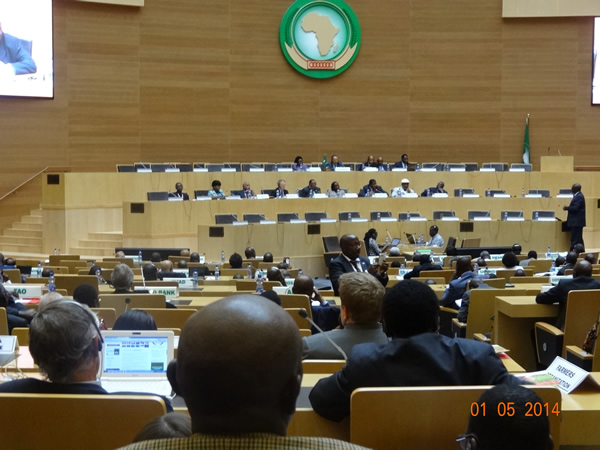AU Malabo Declaration of 2014 Reinforces the Maputo Declaration of 2013

22/9/2014
The just adopted Malabo declaration on Accelerated Agricultural Growth and Transformation for Shared Prosperity and Improved Livelihoods 2014 was applauded by African citizens as one of the few conventions of the African Union and NEPAD which has been hugely informed by citizens who earlier this year formed a non state actors coalition which called upon African leaders to move from “Rhetoric to Action”. The call emanated from the fact that despite the provision of the Maputo declaration of 2003 requiring African governments to allocate a minimum of 10% of their national budgets to agriculture and working towards an annual sectoral growth rate of 6%, only a handful of countries had reached the 10% hall mark yet none of all African countries has passed the annual productivity growth rate of 6%. This called into question the willingness of governments to prioritise Agriculture in budgeting and yet the agriculture sector has been proven to provide a quicker route for most African citizens who are small scale farmers to escape the poverty trap. This propelled the African NSAs to call upon their national governments to move from the rhetoric that agriculture is the back bone of African economies and act upon it by committing themselves and accepting to be mutually accountable and responsive to their citizens’ priorities.
The Malabo declaration, which was endorsed in the Equatorial Guinea capital of Malabo in June 2014 with the blessing of African heads of state and civil society, is supposed to reinforce the Maputo declaration. This was all in the commemoration of the African Year of Agriculture and Food Security which also marked the 10th anniversary of the CAADP.
The Malabo declaration is tipped to strengthen the role of Non State Actors in the agricultural sector and to enhance the performance of government because it calls upon governments to uphold the Maputo declaration and CAADP; eradicate hunger and poverty by 2025; boost intra-Africa trade in agricultural goods and services; enhancing community resilience against climate change and livelihood shocks; it also urges the inclusion and participation of youths and women in policy processes. The declaration institutes mutual accountability mechanisms through the joint sector reviews and a transparent results frameworks to enhance monitoring and accountability. The Malabo declaration further heeded the NSA calls for all development partners investing in Africa’s agriculture to align their initiatives and development intervention with the CAADP framework as well as urging national governments to undertake sector wide coordination of all national efforts/ministries/departments working towards achievement of the CAADP targets.
It is hoped that the Malabo declaration will be the catalyst that steers African small scale farmers, especially the women and youth on the pathway of becoming the drivers of growth on the continent. This should be the declaration that NSAs promote because it is largely informed by NSA input unlike the previous Maputo and Sirte declarations which were less consultative.






















